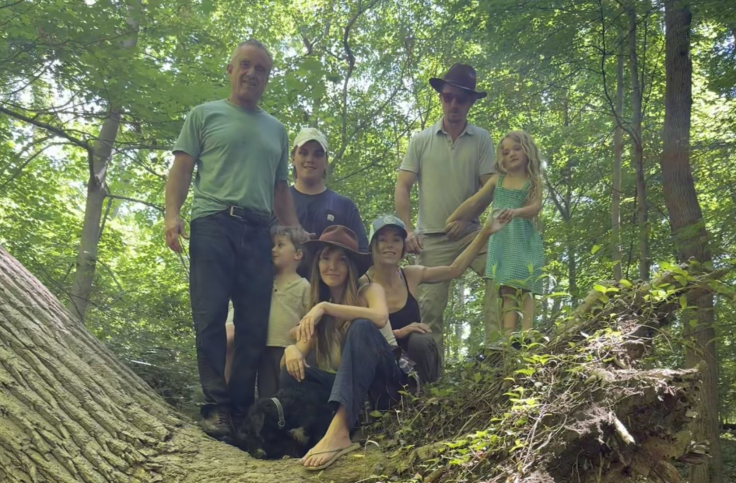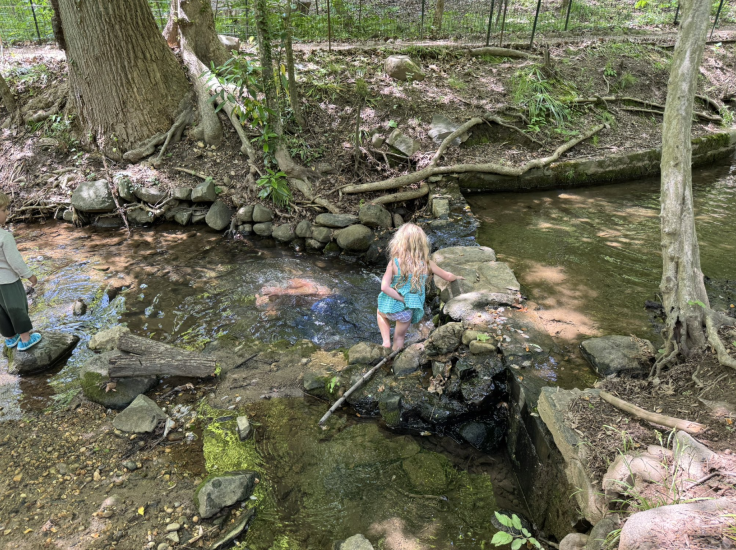Why Did RFK JR Go Swimming In Rock Creek Brimming With Fecael Contamination and E. Coli?

On Sunday, 11 May 2025, US presidential hopeful Robert F. Kennedy Jr. stirred public confusion and criticism after sharing a photo of himself swimming in Rock Creek, a notoriously polluted stream in Washington, D.C. The image, which also showed several of his grandchildren wading in the water, quickly spread online—not because of the family outing itself, but because of where it took place.
Rock Creek is under long-standing no-swim advisories from the National Park Service due to unsafe levels of E. coli and faecal bacteria caused by sewage overflows. Yet here was the country's top health official—currently serving as Secretary of Health and Human Services—taking a dip with children in waters environmental agencies have warned against for decades.
A Statement or a Stunt?
Kennedy is no stranger to controversy. As a well-known vaccine sceptic and critic of public health institutions, his swim has been interpreted by many as more than just a casual family moment. To critics, it looks like a calculated act meant to challenge government guidance. To supporters, it's another example of Kennedy refusing to conform.
His campaign has offered only a vague rationale—suggesting that the act was intended to 'highlight the natural beauty of America's waterways' and call attention to pollution. But even among those who share his environmental concerns, eyebrows were raised. After all, what message is being sent when the person tasked with promoting public health openly ignores safety advice?
Dangerous Waters

Rock Creek is not simply unclean—it's consistently classified as hazardous. The Environmental Protection Agency (EPA) and DC Water have reported high levels of bacteria, especially after rainfall, when the city's outdated sewer system overflows into the stream.
Health officials warn that contact with such water can result in serious illness, particularly in young children or those with weakened immune systems. Rashes, stomach bugs, and more severe infections are not uncommon. The Centers for Disease Control and Prevention (CDC) maintains clear guidance: avoid swimming in contaminated urban waterways.
So when Kennedy chose to enter the creekmand encouraged his grandchildren to join many public health experts saw it as not just poor judgement, but a breach of his responsibilities.
Public Health vs Personal Beliefs

The timing could not have been more sensitive. During the 2024 presidential election, Kennedy positioned himself as a candidate who challenged mainstream institutions—placing his every move under intense scrutiny.
One environmental health researcher at George Washington University described the incident as 'worrying,' not because of the act itself, but the message it sends. 'He's not just a private citizen,' she said. 'He's the Secretary of Health. People look to him for cues on what's safe and what isn't.'
The risk, some argue, isn't just bacterial—it's reputational. Public trust in health institutions, already fragile post-pandemic, could take a further hit when high-profile figures appear to disregard science-backed guidelines.
Environmental Irony
The incident also presents a difficult contradiction. Kennedy has long been an advocate for clean water. As the former head of the Waterkeeper Alliance, he spent years campaigning to protect American waterways from industrial and municipal pollution.
That environmental legacy is part of what makes the swim so puzzling. Critics say it undermines his credibility and draws attention away from serious issues like water infrastructure, regulation, and conservation. Instead of starting a conversation about urban water health, Kennedy now finds himself at the centre of a debate about political showmanship.
© Copyright IBTimes 2025. All rights reserved.





















